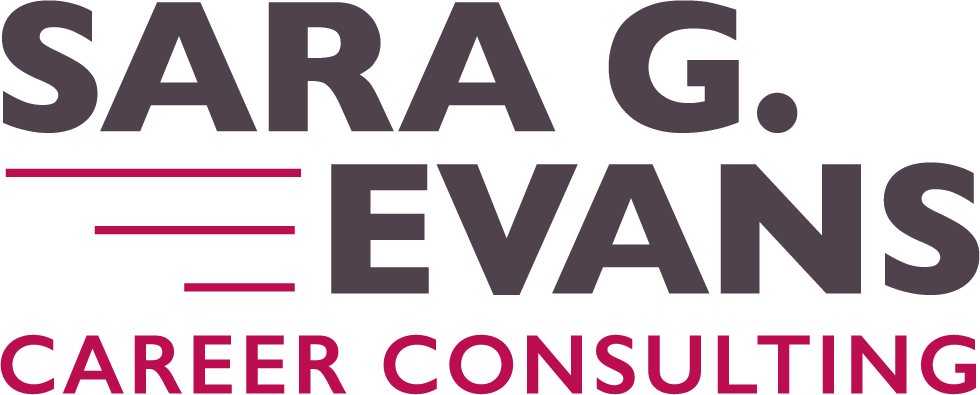Don’t Wait to Start Networking. How You Can Begin Today.
“I need to update my resume before I start networking”
“Once I know what kind of job I want I’ll start reaching out to people”
“I’m not ready to make a move so I don’t want to tell people I’m looking”
Do any of these internal monologues resonate with you? If you answered yes, it's time to change your mindset and improve your odds of accomplishing your goals.
What’s holding you back?
A self-centered mindset. According to Forbes, the first thing that may prevent people from building a strategic network is the mindset that networking is solely self-serving. If we believe that an attempt to establish relationships is for our benefit only, we are less comfortable seeking out these conversations. A strong network, however, is built with mutually beneficial relationships. In the process of getting to know someone, you understand how you can add value and help them, and they are then willing to help you (1).
A reactive approach. Waiting for the perfect resume or LinkedIn profile to engage in conversations with members of your network implies these relationships are only tapped into when help is desired. Unfortunately, if you wait until you have a need you may discover that you no longer have much of a support network.
Why networking should be an immediate priority.
Most jobs are found through networking
According to a 2016 report from the U.S. Bureau of Labor Statistics and Yale University, 70% jobs are found through networking (2). According to Matt Youngquist, president of Career Horizons, "At least 70%, if not 80%, of jobs are not published. And yet most people – they are spending 70% or 80% of their time surfing the net versus getting out there, talking to employers, taking some chances [and] realizing that the vast majority of hiring is friends and acquaintances hiring other trusted friends and acquaintances (3)."Companies want to hire candidates who come through referrals
Referred candidates are faster and cheaper to hire than traditional candidates, will onboard faster and stay at their job longer than a traditional hire. What’s more, an employee who successfully referred a candidate is likely to stay at their company longer than one who has not (4). Companies recognize these benefits and frequently have employee referral programs in place to reward employees who bring in new talent.Job opportunities aren’t always predictable
Networks grant access. Access increases opportunities. Capitalizing on opportunities leads to success. Timing and talent are important factors, but having the right network to leverage when you need it vastly improves your probability of success. In other words, like in surfing, you have to be in the right position to catch the big wave when it comes. Your network sets you up to take advantage of that wave instead of being behind and desperately paddling to catch up to it.Informed career decisions take time
You didn’t get to this place overnight, and you won’t get to your next destination without doing some fact finding. Is work life balance an issue for all lawyers, or just the ones you know? Do you need another master’s degree, or will a two-month certification program get me where I need to go? What are the tradeoffs? Form your own opinions by talking to people with firsthand experience.
Tips for becoming a better networker.
Tap into personal networks. One of the biggest oversights motivated networkers make is overlooking opportunities for networking in casual settings. Bumping into a neighbor taking a walk on a summer evening. Attending a wedding and finding out that the person sitting next to you works in the same industry - or better yet, the industry you’re hoping to transition to. Instead of simply making niceties, show interest in their line of work by asking questions. Individuals booked solid from 9-5, Mon - Fri might welcome an opportunity to talk about themselves when they aren’t up against the clock.
Maintain business relationships. Your workplace network can also help you improve as a professional and as an employee. A mentor who is willing to give you advice and guidance can help you gain maturity and experience. A coworker who has a specific technical skill might be willing to offer you training. These opportunities for self-improvement in the workplace can make you a more valuable employee and a more attractive candidate for future job searches.
According to the US Bureau of Labor Statistics, workers spend an average of 4.2 years working at a job before moving on. (5) Which means the person you work with today just might end up at the company you want to work for tomorrow.
Know your value proposition. Get good at communicating your value proposition (how your work contributes to positive work outcomes), in less than 2 minutes. Your value proposition helps you create mutually beneficial relationships because you understand how you can help others (add value). Once you get how you can help others, you eliminate the limiting belief that your networking activity is self-serving. Be ready when someone takes an interest in what you have to offer.
Solicit professional support. Everything you’ve read makes sense...but coming up with a plan and/or executing against it feels overwhelming. I’m here to help.
